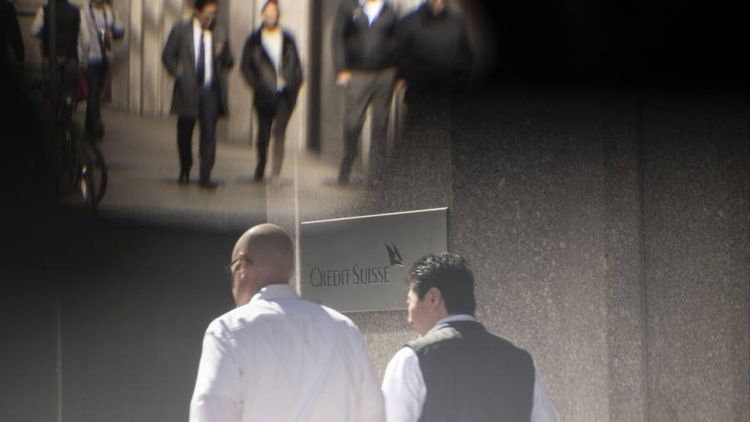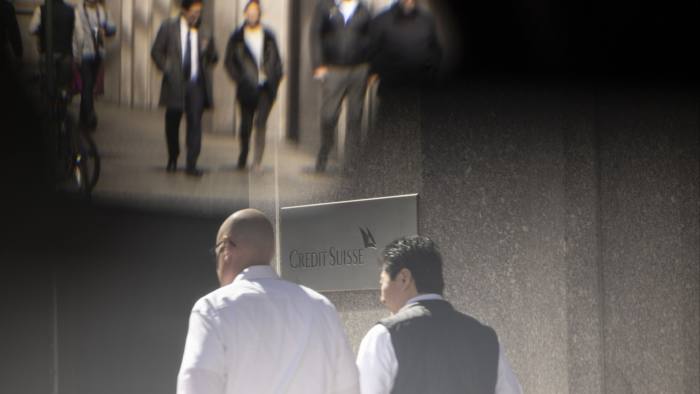UBS sets ‘red lines’ for Credit Suisse staff as it completes takeover

The purpose of Diktat is to minimize the chances of risk involved in the transaction that was planned by the Swiss government.

Get complimentary updates for UBS Group AG
You will receive an email called myFT Daily Digest every morning which will summarize the most recent news about UBS Group AG.
After acquiring Credit Suisse on Monday, UBS has set stringent limitations on the bank's employees. They are prohibited from taking on new customers in nations that are deemed to have a high risk and are not allowed to deal with complicated financial products.
According to insiders, the executives at UBS have created a list of around 20 restrictions that they expect Credit Suisse employees to adhere to once the two banks merge. These "red lines" prohibit a variety of activities, and will be in effect from day one.
Activities that are not allowed involve accepting customers from nations such as Libya, Russia, Sudan, and Venezuela and introducing fresh goods without getting approval from UBS managers.
To avoid any chances of money laundering, it has been decided to restrict access to Ukrainian politicians and state-owned companies.
Last month, UBS chair Colm Kelleher expressed concerns about "cultural contamination" when it comes to hiring former Credit Suisse employees. He stated that UBS will be very strict in selecting individuals to join their team.
The restrictions created by UBS' compliance team are aimed at lessening the dangers associated with the deal. The Swiss government put together the transaction three months ago to keep Credit Suisse from going under.
On Monday, UBS announced that they have successfully taken over the company. Kelleher and Sergio Ermotti, the CEO, declared in a public statement that they will always prioritize UBS's firm values, careful risk management, and exceptional customer service. They will never make sacrifices in these areas.
The top brass at UBS are concerned that they are competing against a bank that has historically had a greater propensity to take on clients with a high level of risk and offer them products that involve substantial stakes. During the last stages of its tenure as a separate entity, Credit Suisse encountered a string of scandals and emergencies, which were identified as being caused by its lenient approach toward risk, according to an internal report.
On Wednesday, UBS reached a deal with the Swiss government that would grant the bank up to SFr9bn ($10bn) to safeguard itself from any potential losses during its rescue efforts. Under the agreement, the government's aid would only come into play after UBS had already covered the initial SFr5bn of losses.
The completion of the takeover by UBS was contingent upon the finalization of the loss protection agreement, which was the last obstacle they had to overcome.
UBS managers have identified a set of boundaries called "red lines" that encompass 11 potential financial hazards and 12 non-financial hazards.
Although a lot of the dangers pertain to how Credit Suisse operates on a day-to-day basis, like the manner in which they handle research and utilize their office spaces, there are also other regulations that have a more direct impact on various aspects of their business.
According to regulations, Credit Suisse employees are not permitted to engage in the trading of certain obscure financial instruments, such as Korean derivatives and specific quantitative index options.
Credit Suisse faced a loss of $120 million from Korean derivatives in 2006, which resulted in the reorganization of its management team. However, despite the setback, the bank still conducts business in the market.
Credit Suisse staff are obliged to request UBS leaders' consent before prolonging loans supported by properties like boats, vessels, and land worth over $60 million.
Being the bankers for some of the wealthiest individuals across the globe, Credit Suisse has been lending money for private jet purchases and engaged in financing for yachts as well.
Credit Suisse requested hedge funds and other investors to get rid of papers concerning the opulent possessions, such as yachts and private jets, of their wealthiest customers after a scandal was exposed by the Financial Times. The scandal involved a securitization deal regarding loans provided to oligarchs who were then subjected to sanctions.
Employees working for Credit Suisse's Swiss bank are required to seek authorization from UBS in case they need to provide loans to clients who are located outside of Switzerland or are interested in purchasing real estate in a foreign country.
Credit Suisse bankers are not allowed to take on clients from countries that are considered high-risk for financial corruption and illegal practices like money laundering and bribery. Countries that fall under this category include Afghanistan, Albania, Belarus, Burkina Faso, Democratic Republic of Congo, El Salvador, Eritrea, Ethiopia, Guinea, Haiti, Iraq, Kosovo, Kyrgyzstan, Libya, Moldova, Myanmar, Nicaragua, Palestine, Russia, South Sudan, Sri Lanka, Sudan, Tajikistan, Turkmenistan, Uzbekistan, Venezuela, Yemen, and Zimbabwe. This measure is meant to prevent any unwanted financial risks and ensure that the bank operates with integrity.
On Thursday, Credit Suisse employees received a internal message that informed them about upcoming "red lines" once the agreement was finalized. The memo, however, did not specify the specifics of these regulations.
UBS and Credit Suisse decided not to provide any statement about the regulations.
On a different note, Swiss lawmakers made the decision to grant authority to a unique parliamentary commission of inquiry regarding the collapse of Credit Suisse on Thursday.























































